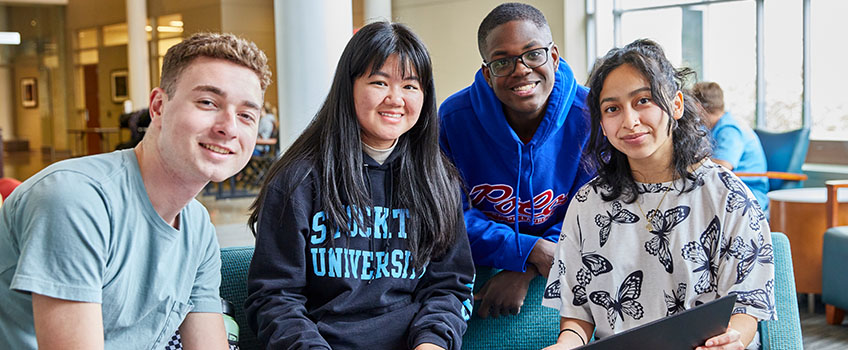MSCHE Affirms Stockton Accreditation

Galloway, NJ – Stockton University received notice its accreditation has been reaffirmed by the Middle States Commission on Higher Education (MSCHE) following an intensive review of its programs.
The visiting evaluation team, comprised of representatives of peer institutions, issued a report praising Stockton for its commitment to student success and successfully implementing “high-impact practices to develop students’ critical thinking skills and social consciousness.”
Accreditation by MSCHE is for an 8-year term. It was granted by the association this summer following completion of the regular reaccreditation process, which includes Stockton’s self-study report and Middle States’ comprehensive evaluation. The process included a virtual visit by a MSCHE evaluation team. The next scheduled review will be in 2029-30.
“We are delighted to receive this exceptional affirmation of the quality education and environment we have cultivated over Stockton’s 50 years,” said Robert Heinrich, vice president for Enrollment Management and co-chair of Stockton’s 2021-22 Middle States Self-Study Team.
The reaffirmation of our accreditation by the Middle States Commission on Higher Education, as well as our high rankings by U.S. News & World Report and Princeton Review, support what we already know. Stockton is a leading institution to live, work and learn. We are delivering on the promise to make a Stockton degree more valuable every day.President Harvey Kesselman
The report commended Stockton for fostering a climate of respect among students, faculty, staff and administration from a range of diverse backgrounds, ideas and perspectives. Specifically, it cited the university for “its efforts to expand the diversity and inclusion practices of its student body, especially those of gender, race, and ethnicity.” Examples include the Sara & Sam Schoffer Holocaust Resource Center, Los Latinos Unidos student organization, Stockton Voices social media campaign, and the Multicultural Center under construction.
“The reaffirmation of our accreditation by the Middle States Commission on Higher Education, as well as our high rankings by U.S. News & World Report and Princeton Review, support what we already know,” President Harvey Kesselman said. “Stockton is a leading institution to live, work and learn. We are delivering on the promise to make a Stockton degree more valuable every day.”
The university’s commitment to student success, including the numerous academic and individual support services available to students, were also highlighted.
“Stockton’s low 17:1 student to faculty ratio and focus on supporting first-generation and underrepresented students were emphasized in the report, showcasing our commitment to the student-first philosophy,” Provost Leamor Kahanov said. “The MSCHE commission also noted Stockton’s faculty are specialists in their fields, with 96% holding terminal degrees, and play a pivotal role in the retention of students.”
The evaluation process used by the Middle States Commission of Higher Education measures institutional effectiveness and assesses learning outcomes and programs, financial condition, facilities and virtually every phase of operations. In advance of the MSCHE visit and report, institutions are required to prepare their own self-study reports on these aspects and more. Stockton spent two years and involved more than 80members of faculty and staff in this self-study.
The MSCHE assessments are conducted through a series of rigorous accreditation standards and enforcement. The group’s self-regulation and peer-review process are designed to help institutions improve and maintain quality assurance for parents and students. MSCHE accreditation also impacts the institution’s funding and ability to attract quality faculty, administrators and staff. Accreditation is mandatory for students to be eligible for financial aid.
Stockton’s Middle States Self-Study Team was chaired by Heinrich, Claudine Keenan, dean of the School of Education, and Manish Madan, associate professor of Criminal Justice and president of the Faculty Senate.
Story by Stacey Clapp


